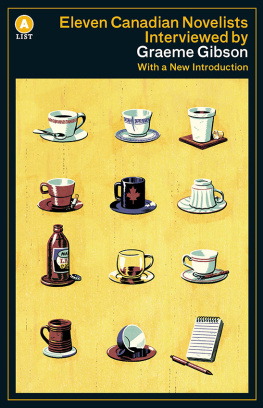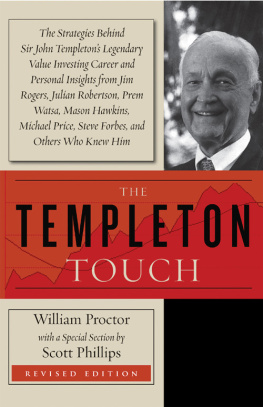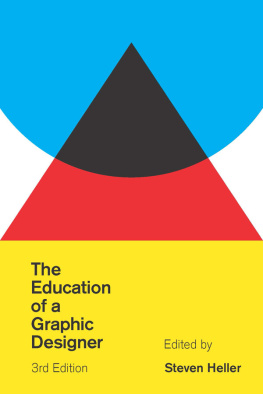
To all of our teachers, with admiration and respect.
And to our parentsour first and greatest teachers.
Text copyright 2014 by the individual text contributors.
Illustrations copyright 2014 by Arthur Mount.
All rights reserved. No part of this book may be reproduced in any form without written permission from the publisher.
Library of Congress Cataloging-in-Publication Data available.
ISBN: 978-1-4521-1531-3 (pb)
ISBN: 978-4-4251-3420-8 (epub, mobi)
Design by Brooke Johnson and Jennifer Tolo Pierce
Chronicle Books LLC
680 Second Street
San Francisco, CA 94107
www.chroniclebooks.com
ACKNOWLEDGMENTS
Our deepest gratitude goes to everyone who helped to make this book a reality. First and foremost, the contributors: Debbie Adams; Bob Aufuldish; Kermit Bailey; Jessica Barness; Brad Bartlett; Leslie Becker; Rachel Berger; Marta Bernstein; Marco Campedelli; May Chung; John V. Clarke; Peter Cocking; Dennis Crowe; Lou Danziger; Natalie Davis; Melanie Doherty; Jason Dubin; Elliott Earls; Patrick FitzGerald; Mark Fox; Leslie Friesen; John Gambell; Roderick Grant; Cheri Gray; Tina Hardison; Eric Heiman; Amber Howard; Dan Hoy; Mariko Jesse; Walter Jungkind; Brett MacFadden; Emily McVarish; KT Meaney; Leigh Mignogna; N. Silas Munro; Charles Nix; Lindsay Nohl; Jayme Odgers; Kevin Paolozzi; Clive Piercy; Andy Pressman; Hank Richardson; Martha Scotford; Doug Scott; Liz Selbert; Ben Shaykin; Steven Skaggs; Andrew Sloat; Carol Sogard; Michael Vanderbyl; Petrula Vrontikis; Pirco Wolfframm; Angie Wang; Franz Werner; and Maranatha Wilson. Thank you for generously sharing not only your words of wisdom but also your passion for and commitment to design education.
Many thanks, as well, to those who introduced us to or otherwise helped connect us with design teachers throughout North America and beyond: Sandro Berra; Marta Castrosin; Michael Carabetta; Emily Dubin; Neil Egan; Laura Howell; Eloise Leigh; Lauren Smith; and Allison Weiner. Its not always about who you know, but sometimes knowing a certain someone can really help.
Last but not least, this book would not have been possible without the support and dedication of the Chronicle Books team: Lia Brown, Yolanda Cazares, Caitlin Kirkpatrick, Diane Levinson, Peter Perez, Leigh Saffold, Erin Thacker, and Bridget Watson Payne. Thank you for believing in this project from concept to final book and for your encouragement and guidance along the way.
Think its all been done before? No one has done this in your unique voice, at this time, in this context. Be authentic and do it anyway.
JESSICA BARNESS
School of Visual Communication Design
Kent State University
INTRODUCTION
Design school. For many designers, those two words immediately conjure the experience of plunging into new territory, of grasping (not even close to mastering) the strangely unfamiliar vernacular of design, of standing with jaws on the floor before flashes of true design genius, of late nights and passionate experimentation, of epic failures and surprising successes. Design school may mean undergraduate study or graduate, low residency or full time on location. It may mean a class or two to refine an instinctive talent, or it may even mean on-the-job learning (sometimes the best kind of learning there is). Whatever the outside package, the overall experience is ultimately the same (with variations)the experience of evolving from a nondesigner into a designer. Throughout this experience, there are the words of the design teachers and mentors that lift up, tell it straight, and otherwise guide young designers into their own. These words are the pearls of design school wisdom, words that need only be uttered once to be remembered for a lifetime.
Design School Wisdom was born out of a desire to share the wisdom of design instructors with designers everywherestudents just entering their studies or recent design school graduates starting their first jobs, designers well into their careers or seasoned pros who still can benefit from the wisdom of their peers. We asked teachers and students from across the country and beyond for their pearls of design school wisdom, and we received varied and enthusiastic replies. As this book has taken shape, we have been continually inspired both by the words themselves and by the spirit in which they are shared.
Design teachers and mentors are a dedicated group, and whether their words in the classroom are intentionally imparted or blasted in a fit of design passion and enthusiasm, their students listen, their fresh minds soaking up every word. Ask any designer to quote you something a teacher said in design school, and she will have at least one example that has lodged in her design brain forever.
In addition to inspirational adages, Design School Wisdom also shares in-depth perspectives on design education and educators. Some essays address multiple topicsfrom defining design education to inspiring accounts of teachers who have played major roles in a particular designers development (and influenced her own path as a teacher). There are interviews between students and their instructors that reveal both different approaches to teaching and the unique relationships that form between student and teacher within the world of design education and practice. There is no right or wrong way to approach this book. Read it cover to cover, or dive in at random. Experience it as you would walking through a traditional design schoolattend a popular lecture, join an animated discussion, eavesdrop on the teachers words punctuating the intense focus of the design school environment. Have fun. Listen in. Share what you hear. Add your own words of wisdom to the mix. Above all, be inspired.
Design education doesnt ever end, even after many, many years of professional practice. The best part of that education, though, happens when your mind is open and eager to learn, when everything is new, and when you see only the potential of great things to come.
ALWAYS BE LEARNING.
CHARLES NIX
Parsons The New School for Design
THE SOLUTION
TO EVERY
PROBLEM LIES
WITHIN THE
PROBLEM ITSELF.
JAYME ODGERS
California Institute of the Arts
Most of the work you do will be for the average person. Dont separate yourself from society so much that you forget what its like to live life.
JASON DUBIN
Art Center College of Design
Dont make it look like you got Photoshop for Christmas.
KERMIT BAILEY
North Carolina State University
College of Design
CONTRAST IS YOUR FRIEND.
BOB AUFULDISH
California College of the Arts
Admiration: John Gambell :: by Rachel Berger
My subject today is admiration. Whom or what do I admire, and how has that influenced my work and process?
I think admiration is one of the all-time great feelings. Less toxic than envy, less somber than respect, less extreme than worship, admiration is reserved, yet wonderful. It is sweet without being saccharine. It is thoughtful without being intellectual. Its a deceptively sophisticated feelingalmost Victorian, with its buttoned-up surface disguising a deep well of feeling. It feels like a term favored by Jane Austen or George Eliot to describe a quivering young love affair.
What or whom do I admire? Thats easy. I admire all sorts of things. Tartines morning buns. Ke$has style. Michelle Obamas arms. Friday Night Lights. The San Francisco Giants and their terrible hair. Eames rocking chairs. Backup dancers, brain surgeons, and pioneers. But most of all, I admire this man: John Gambell.
Next page










